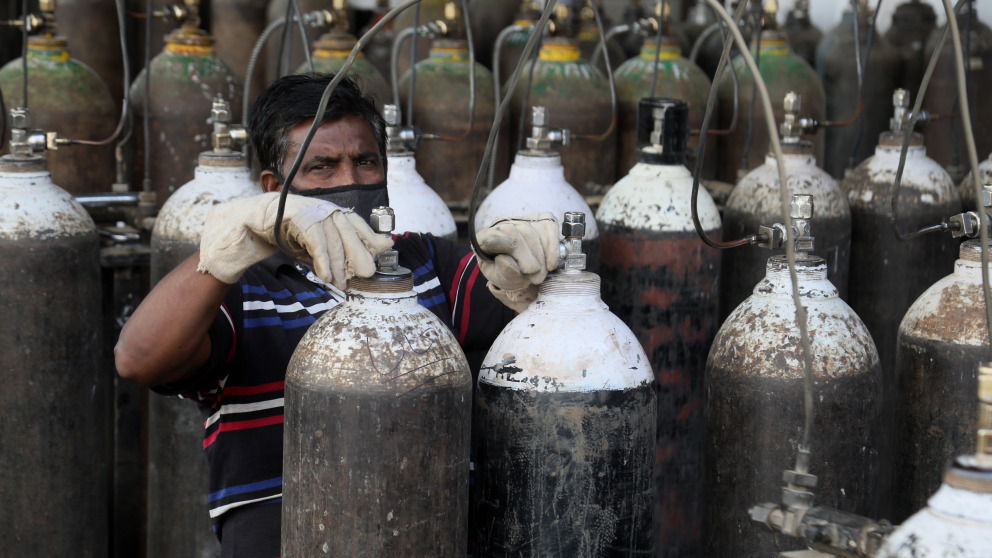Sustainable Solutions for the Global South in a Post-Pandemic World
31.05.2021
The coronavirus pandemic has disrupted efforts to achieve the United Nations Sustainable Development Goals (SDGs) and in some cases stalled progress decades in the making. The pandemic has revealed social inequalities and widened the gulf between countries. In a new study published by the IASS a team of Alexander von Humboldt Climate Protection Fellows analyses the effects of the pandemic on climate mitigation and sustainable development in the Global South.

Titled “Sustainable Solutions for the Global South in a Post-Pandemic World”, the study explores the impacts of this crisis across the diverse fields of renewable energies, urban resilience and ecological services, climate change and the economy. The fifteen authors were asked to consider three central questions in their contributions:
- What progress was made on the SDGs in your area of focus before the pandemic? How has your area responded to the pandemic?
- What are your suggestions and observations for the way forward?
- How can your country bring about solutions in policy and practice to tackle climate change in the wake of the pandemic?
Renewables and energy
In the first section, the authors consider the state of energy markets and the expansion of renewable energies (SDG 7). Their analyses explore the pandemics impacts on economic growth, the livelihoods of the most vulnerable, global inequalities, and investment flows to different regions and countries. Responses to the crisis in Nigeria, Ghana, Argentina, and Iran are a particular focus of this section.
Urban resilience and ecological services
Over half of humankind lives in urban areas, where social and economic inequalities are often heightened, exposing populations to housing shortages, poor water management and infectious illnesses. Rural areas, on the other hand, are affected by deforestation, soil contamination, desertification, and other hazards. The Covid-19 pandemic has heightened these challenges.
In this section the authors take a deeper look at the interdependencies between water management and health measures, emerging challenges around migration during the pandemic, and the ongoing deforestation of southern tropical forests and perceptions of the Amazon rainforest’s immaterial value.
Climate change and the economy
The COVID-19 pandemic, the climate crisis, and the global economy are interdependent phenomena. In this chapter the authors analyse the impacts and challenges thrown up by the coronavirus crisis from an economic and climate change perspective and discuss potential solutions, including:
- a roadmap to incorporate the climate goals of the Paris Agreement within recovery programmes;
- multi-level climate governance for a green recovery;
- lessons for a sustainable and resilient recovery; and
- radical approaches to address socio-economic inequalities and climate change.
About the authors
The new study was prepared by a team of authors with diverse backgrounds and includes engineers, environmental managers, social scientists, and activists from Argentina, Bolivia, Brazil, Colombia, Egypt, Ghana, India, Iran, Kenya, Mexico, Nigeria and Vietnam. All of the authors are visiting Germany as part of the Alexander von Humboldt Foundation's International Climate Protection Fellowship Programme 2020/2021. Funded by the Federal Ministry for the Environment, Nature Conservation and Nuclear Safety (BMU), this special programme promotes young leaders from non-European developing or transition countries in the fields of climate change mitigation and adaptation, ecosystem and biodiversity conservation, and the sustainable use of the seas and oceans.
Publication:
Artur Sgambatti Monteiro, Vinod Ramanarayanan, Nadeem Abdelgawad, Rowan Alumasa Alusiola, Kelechi E. Anyaoha, Sina Ardabili, Natalia Burgos, Melissa Cuevas Flores, Enzo Leone, Amir Mosavi, Minh Anh Nguyen, Morteza Nikravan, Charles Kofi Owusu, Emily Montserrat Castro Prieto, Magaly Ines Beltran Siñani: Sustainable Solutions for the Global South in a Post-Pandemic World, Potsdam/ May 2021.

